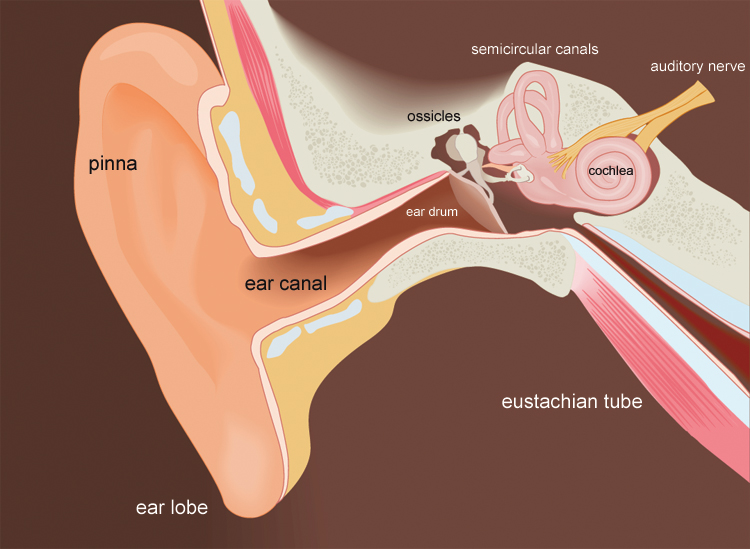Dealing with Water Stuck in Ear for Days Causes and Solutions
When you find yourself with water stuck in your ear for days, the discomfort and frustration can be overwhelming. Whether it’s a result of a refreshing swim, a long shower, or even a sudden downpour, water trapped in the ear can be bothersome and concerning. In this guide, we’ll explore the common causes behind this issue, the symptoms to watch for, and effective remedies to help you find relief.

Causes of Prolonged Water in the Ear
Swimming and Water Activities
One of the most common reasons for having water stuck in your ear is participation in water activities. When we swim, water often enters the ear canal, and under normal circumstances, it usually drains out naturally. However, in some cases, the ear’s anatomy can prevent efficient drainage, leading to prolonged discomfort.
Ear Anatomy
Understanding the anatomy of the ear is essential to comprehend why water can get trapped. The ear canal has a unique shape, with curves and contours that can hinder the escape of water. Additionally, the ear’s design is intended to protect the delicate eardrum, which can sometimes work against us when water becomes lodged inside.
Symptoms and Signs
Recognizing the Problem
Identifying the signs of water stuck in your ear is the first step in finding relief. Here are common symptoms and signs to watch for:
Persistent Wet Feeling:
You may experience a constant sensation of wetness or moisture deep within the ear canal.
Itching and Irritation:
Itchy or irritated skin inside the ear can be a sign of trapped water.
Muffled Hearing:
Water in the ear can temporarily affect your hearing, making sounds seem muffled or distant.
Risks and Complications
Potential Complications
While having water stuck in your ear may seem like a minor inconvenience, it’s essential to be aware of potential complications that can arise if the issue is not addressed:
Infections:
Prolonged moisture in the ear can create a breeding ground for bacteria, increasing the risk of ear infections.
Swimmer’s Ear:
Water trapped in the ear can lead to a condition known as “swimmer’s ear” (otitis externa), characterized by inflammation and discomfort.
Hearing Issues:
Extended exposure to water can affect your hearing temporarily, and in severe cases, it may lead to more persistent hearing problems.
When to Seek Medical Help
Persistent Symptoms
While home remedies are often effective, there are situations where it’s advisable to consult a healthcare professional:
Persistent Discomfort:
If you continue to experience discomfort, pain, or irritation despite trying home remedies, it’s time to seek medical advice.
Fever:
The development of a fever alongside ear discomfort could indicate an infection, requiring medical attention.
Signs of Infection:
If you notice signs of infection, such as discharge, increased pain, or swelling, contact a healthcare provider promptly.
Preventing Water Stuck in the Ear
Earplugs and Swim Caps
Prevention is often the best approach. Consider using earplugs or swim caps when engaging in water activities. These simple but effective measures can significantly reduce the chances of water entering your ears and getting trapped.
FAQs About Water Stuck in the Ear
1. Q: Is it common for water to get stuck in the ear after swimming?
A: Yes, it’s relatively common for water to become trapped in the ear after swimming, especially if the ear’s anatomy or earwax is a factor.
2. Q: How long can water stay trapped in the ear?
A: Water can remain trapped in the ear for varying durations, but it’s advisable to address the issue within a day or two to prevent complications.
3. Q: Can trapped water in the ear cause an ear infection?
A: Yes, prolonged moisture in the ear can create conditions favorable for bacterial growth, increasing the risk of ear infections.
4. Q: What are the signs of an ear infection caused by trapped water?
A: Signs may include increased ear pain, discharge, fever, and worsened discomfort.
5. Q: Are there any home remedies to remove water from the ear?
A: Yes, several home remedies, such as tilting the head, warm water rinses, and alcohol-vinegar solutions, can help dislodge trapped water.
6. Q: Is it safe to insert objects like cotton swabs into the ear to remove water?
A: No, inserting objects into the ear can push water further in and may damage the ear canal or eardrum. It’s not recommended.
7. Q: When should I consider seeking medical help for trapped water in the ear?
A: Seek medical help if you experience persistent discomfort, fever, signs of infection, or significant hearing loss despite home remedies.
8. Q: Can using earplugs or swim caps prevent water from getting trapped in the ear?
A: Yes, using earplugs or swim caps is an effective preventive measure to minimize the risk of water entering the ear.
9. Q: Are there specific earplugs designed for swimmers?
A: Yes, specialized swimmer’s earplugs are available and designed to create a watertight seal while allowing for sound transmission.
10. Q: How can I ensure proper ear hygiene to prevent trapped water and earwax issues?
A: Maintain ear hygiene by avoiding the insertion of objects into the ear canal, using earplugs when necessary, and seeking regular ear check-ups with a healthcare professional.
Conclusion:
Dealing with water stuck in your ear for days can be uncomfortable, but with the right knowledge and techniques, you can effectively address the issue and find relief. By recognizing the symptoms, understanding the risks, and using safe home remedies, you can often resolve the problem on your own. However, if symptoms persist or worsen, don’t hesitate to seek professional medical help to ensure your ear’s health and well-being.




